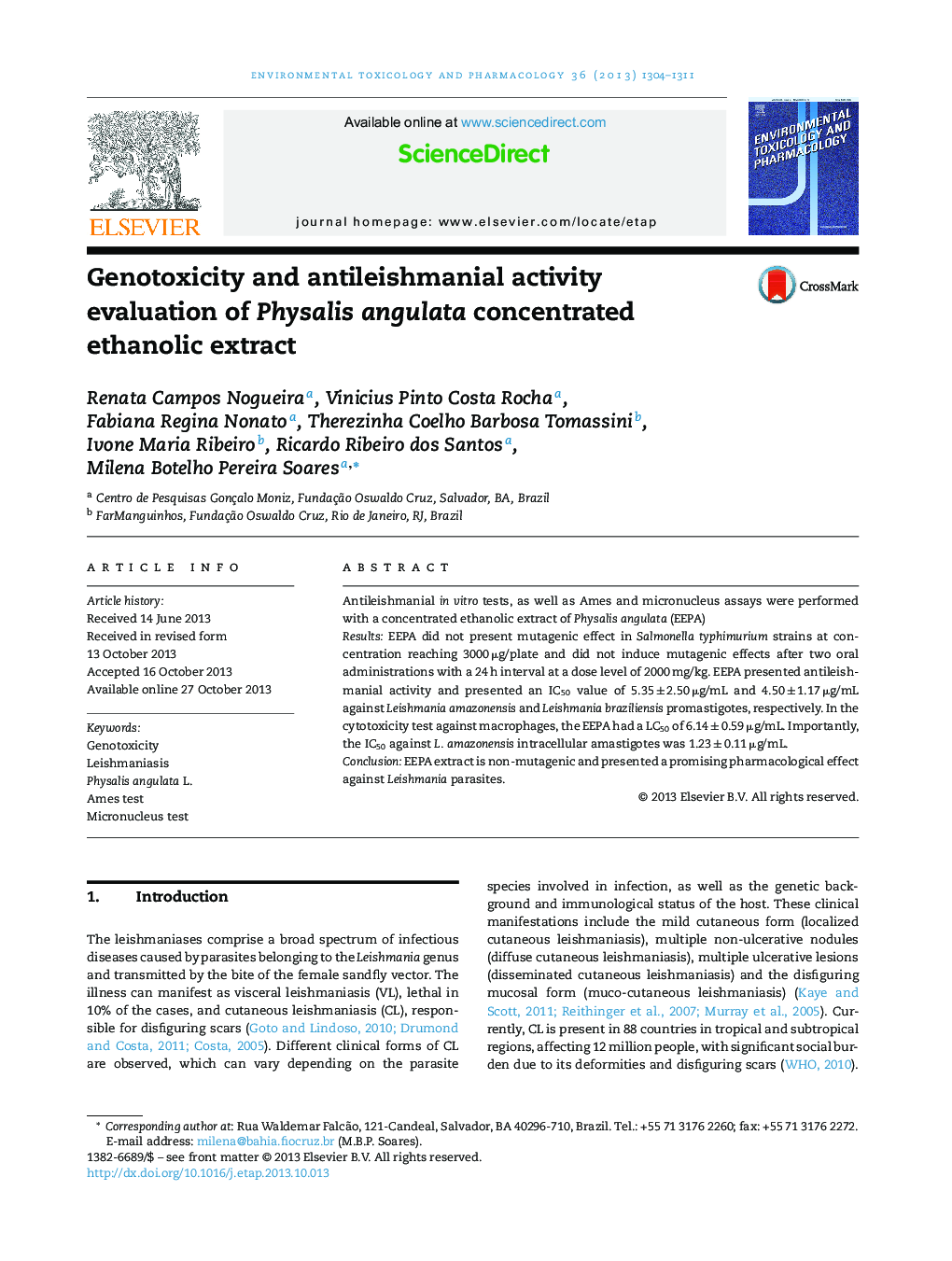| Article ID | Journal | Published Year | Pages | File Type |
|---|---|---|---|---|
| 2583126 | Environmental Toxicology and Pharmacology | 2013 | 8 Pages |
•We report the genotoxic risk assessment of a plant extract to treat leishmaniasis.•Test performed with Salmonella typhimurium strains shows no positive mutagenic effect.•After oral administrations in animals the extract does not induce chromosome damage.•EEPA showed promising antileishmanial activity against intracellular parasites.•Low cytotoxicity in mammalian cells was observed.
Antileishmanial in vitro tests, as well as Ames and micronucleus assays were performed with a concentrated ethanolic extract of Physalis angulata (EEPA)ResultsEEPA did not present mutagenic effect in Salmonella typhimurium strains at concentration reaching 3000 μg/plate and did not induce mutagenic effects after two oral administrations with a 24 h interval at a dose level of 2000 mg/kg. EEPA presented antileishmanial activity and presented an IC50 value of 5.35 ± 2.50 μg/mL and 4.50 ± 1.17 μg/mL against Leishmania amazonensis and Leishmania braziliensis promastigotes, respectively. In the cytotoxicity test against macrophages, the EEPA had a LC50 of 6.14 ± 0.59 μg/mL. Importantly, the IC50 against L. amazonensis intracellular amastigotes was 1.23 ± 0.11 μg/mL.ConclusionEEPA extract is non-mutagenic and presented a promising pharmacological effect against Leishmania parasites.
